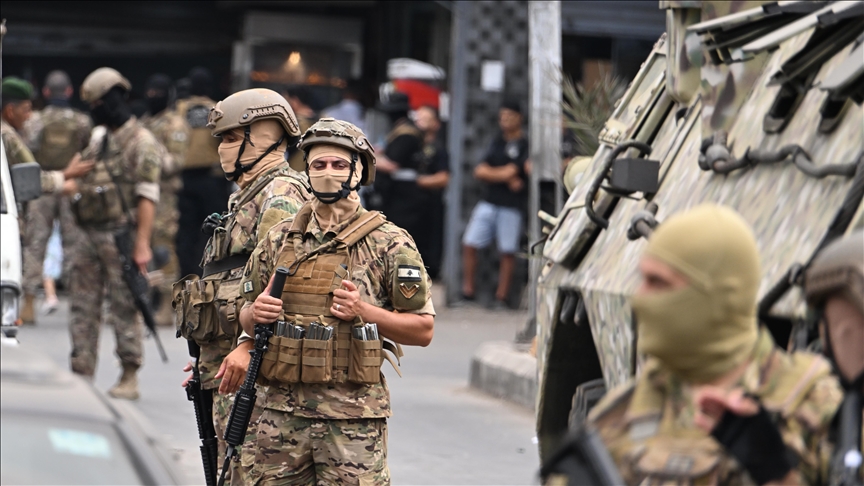Lebanese minister says army plan for state monopoly of weapons has 5 phases
1st phase to cover area south of Litani River, while 2nd targets area south of Awali River, minister says

BEIRUT/ISTANBUL
A Lebanese minister said Saturday that an army plan to confine weapons to state authority consists of five phases.
“There is a broad national consensus on the necessity of placing all arms under state authority,” Minister of the Displaced Kamal Chehadeh said in a televised interview with Saudi Arabia’s Al-Hadath channel.
The Lebanese government approved the army’s plan Friday for a state monopoly of weapons, but decided to keep its contents and deliberations confidential.
Chehadeh said the plan, themed “Shield of the Nation,” consists of five integrated phases.
The first phase will be applied to the area south of the Litani River in southern Lebanon, while the second will cover the area south of the Awali River, he said.
The Awali River lies north of the city of Sidon, 30 kilometers (19 miles) north of the Litani River, which runs 29 kilometers from the Israeli border.
Chehadeh did not provide details on the remaining phases but indicated that the plan includes field measures such as raids in targeted areas.
“A clear timetable has been set for the first stage, with all of the army’s resources currently focused on south of the Litani,” he said. “Lebanon’s military needs have been communicated to allied countries, with Washington increasing its support for the army.”
On Saturday, Lebanese President Joseph Aoun said that the army has completed its deployment in more than 85% of the area south of the Litani.
On Aug. 5, the government decided to restrict all weapons, including those of Hezbollah, to the state, tasking the army with implementing the plan before the end of 2025.
By contrast, Hezbollah Secretary-General Naim Qassem has repeatedly affirmed that the group will not surrender its weapons unless Israel withdraws from Lebanese territory, halts its attacks, releases prisoners and reconstruction begins.
Israel launched military operations in Lebanon on Oct. 8, 2023, which escalated into a full-scale war by September 2024, killing more than 4,000 people, including Hezbollah chief Hassan Nasrallah, and injuring 17,000.
A ceasefire was reached last November, but Israeli forces have conducted near-daily attacks in southern Lebanon, claiming to target activities of the Hezbollah group.
Under the truce, Israel was supposed to fully withdraw from southern Lebanon by Jan. 26, but the deadline was extended to Feb. 18 after Tel Aviv refused to comply. Israel still maintains a military presence at five border outposts.








